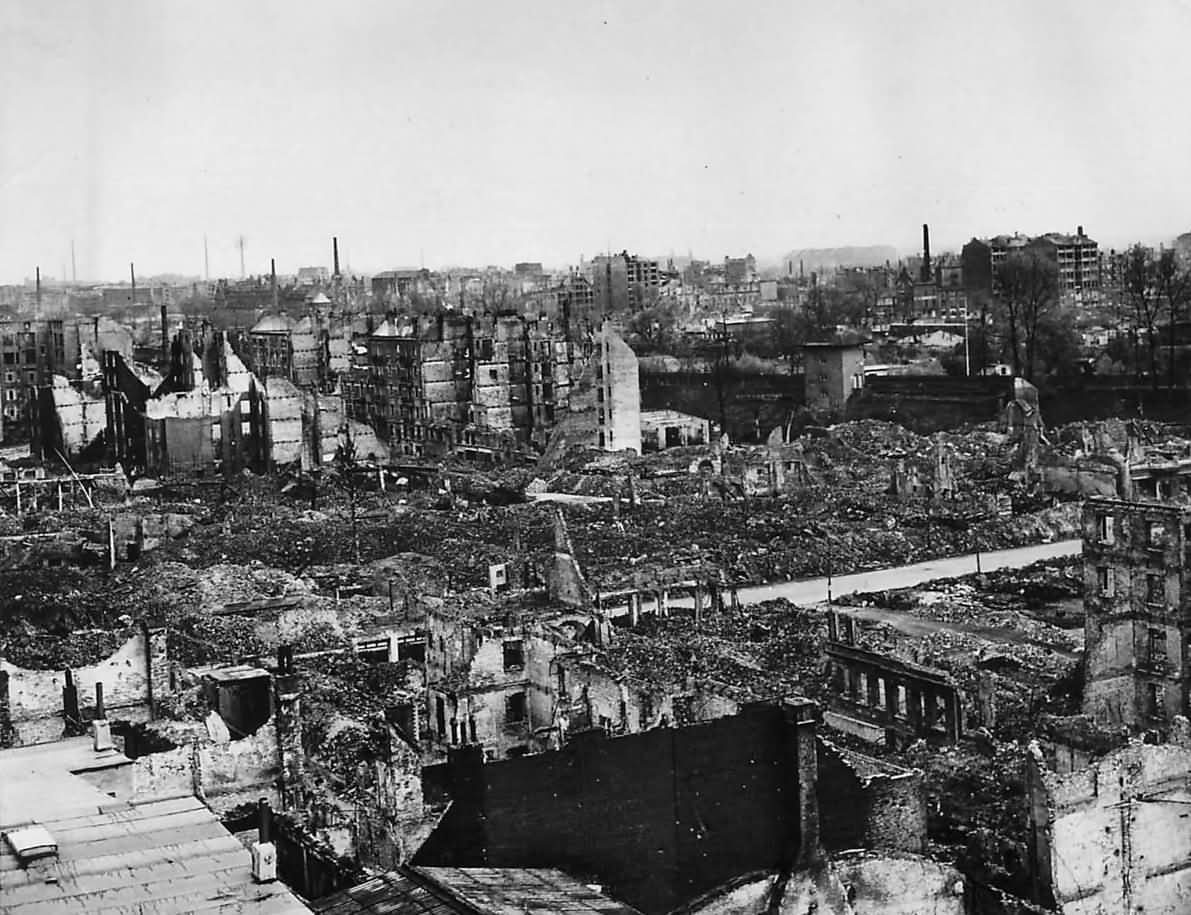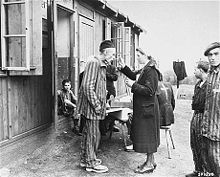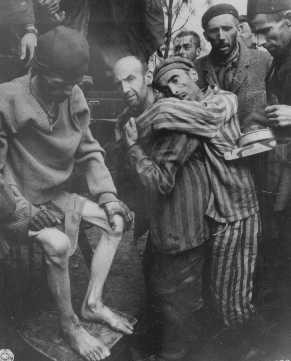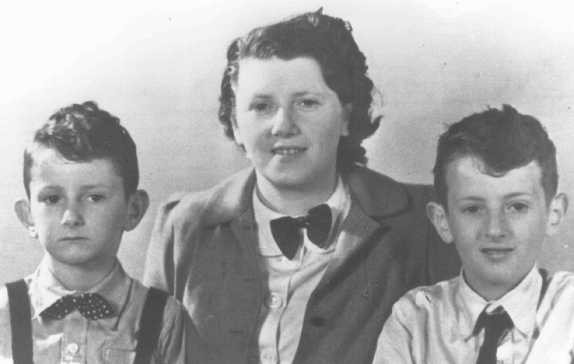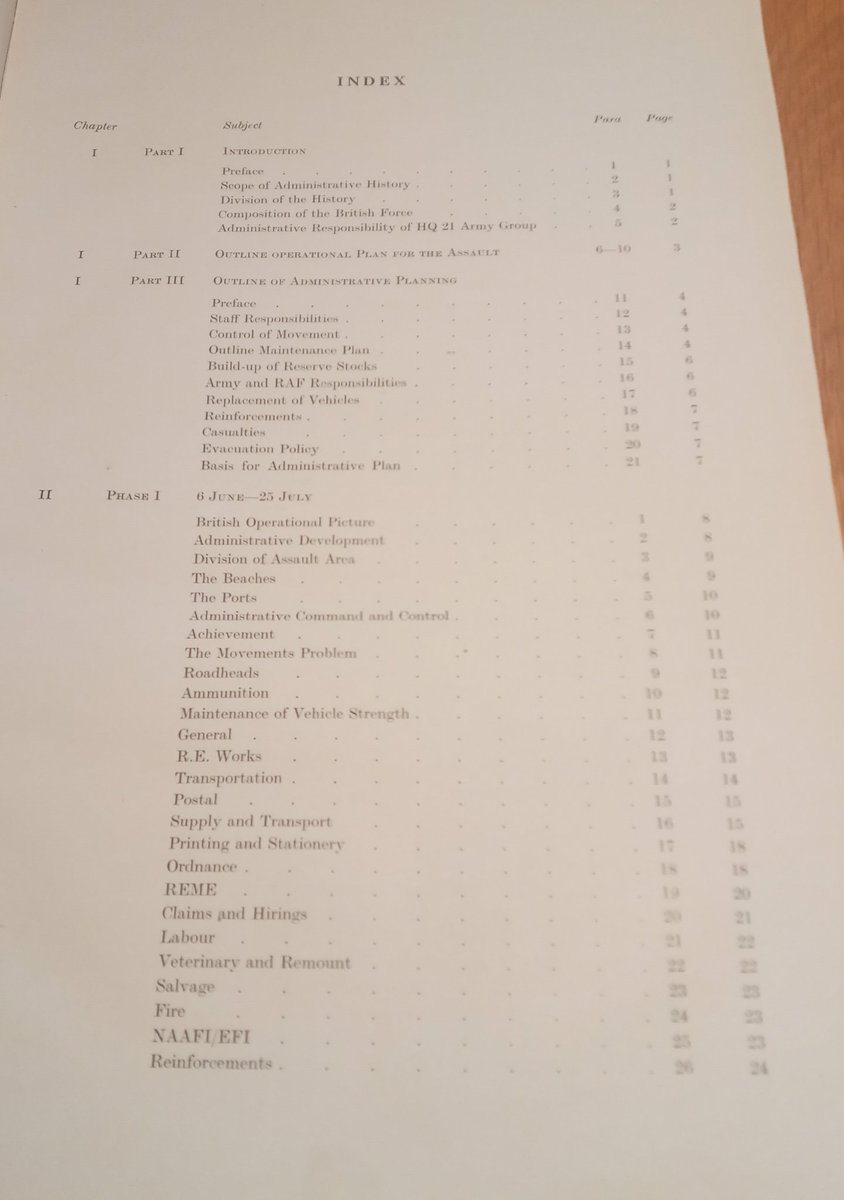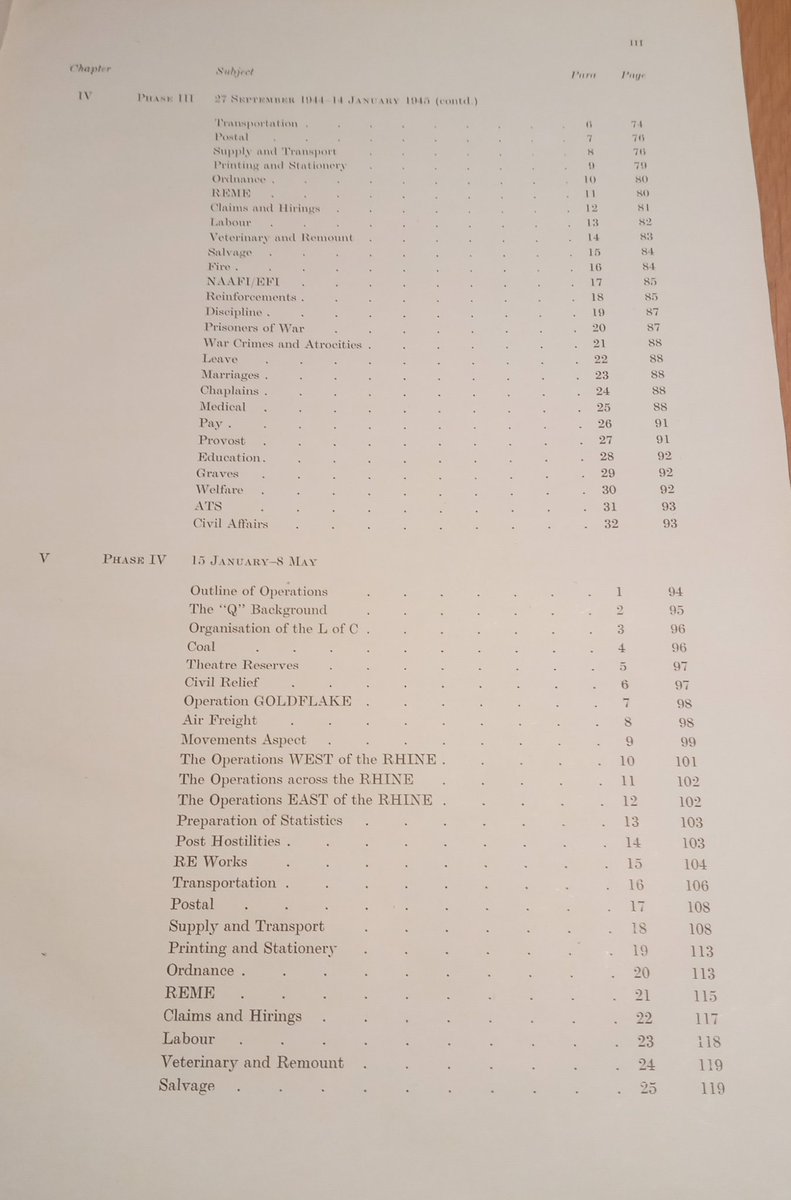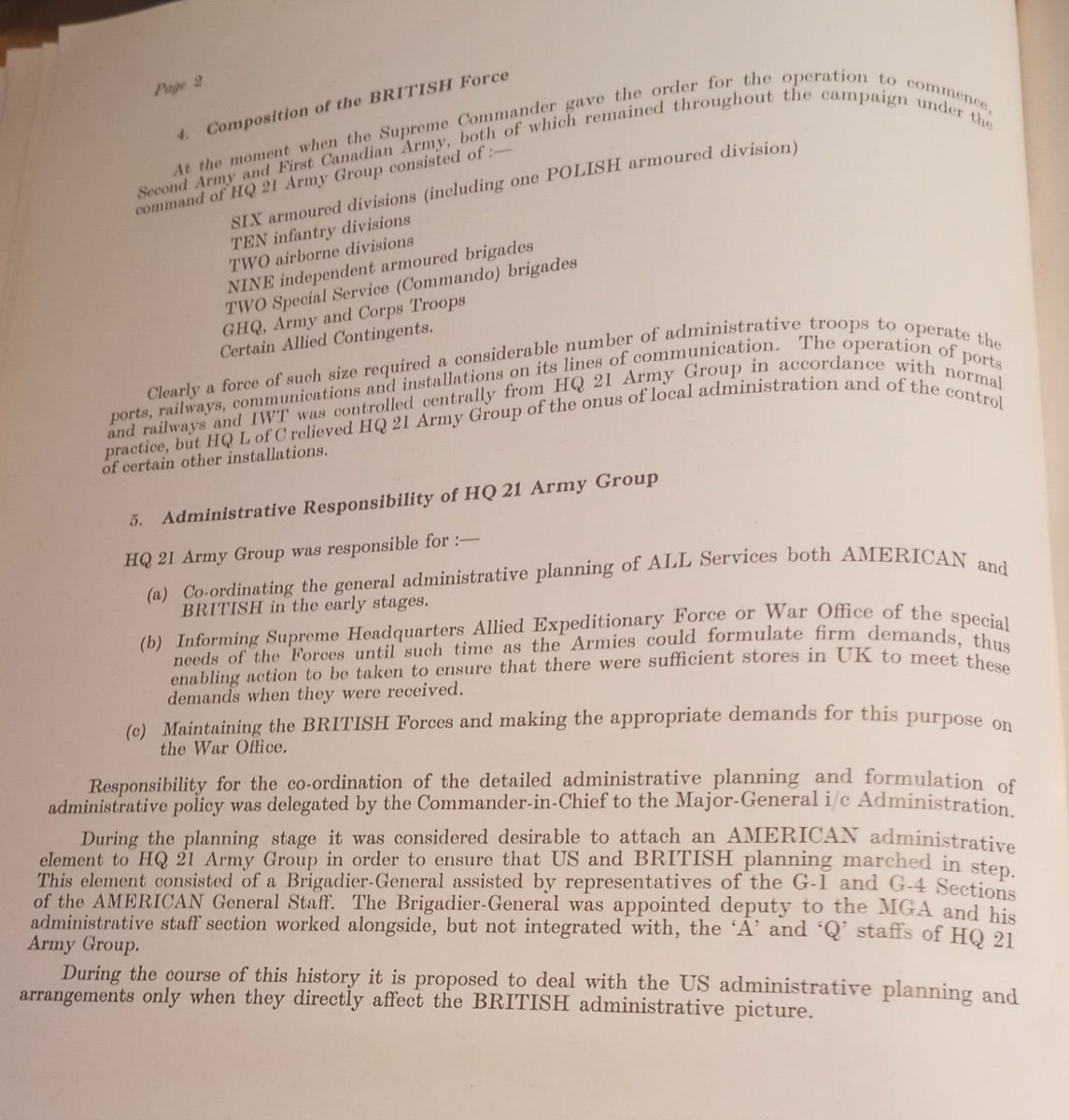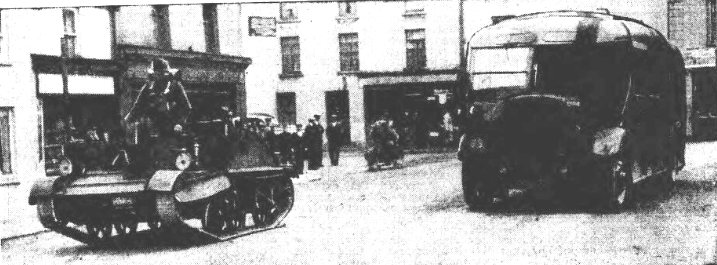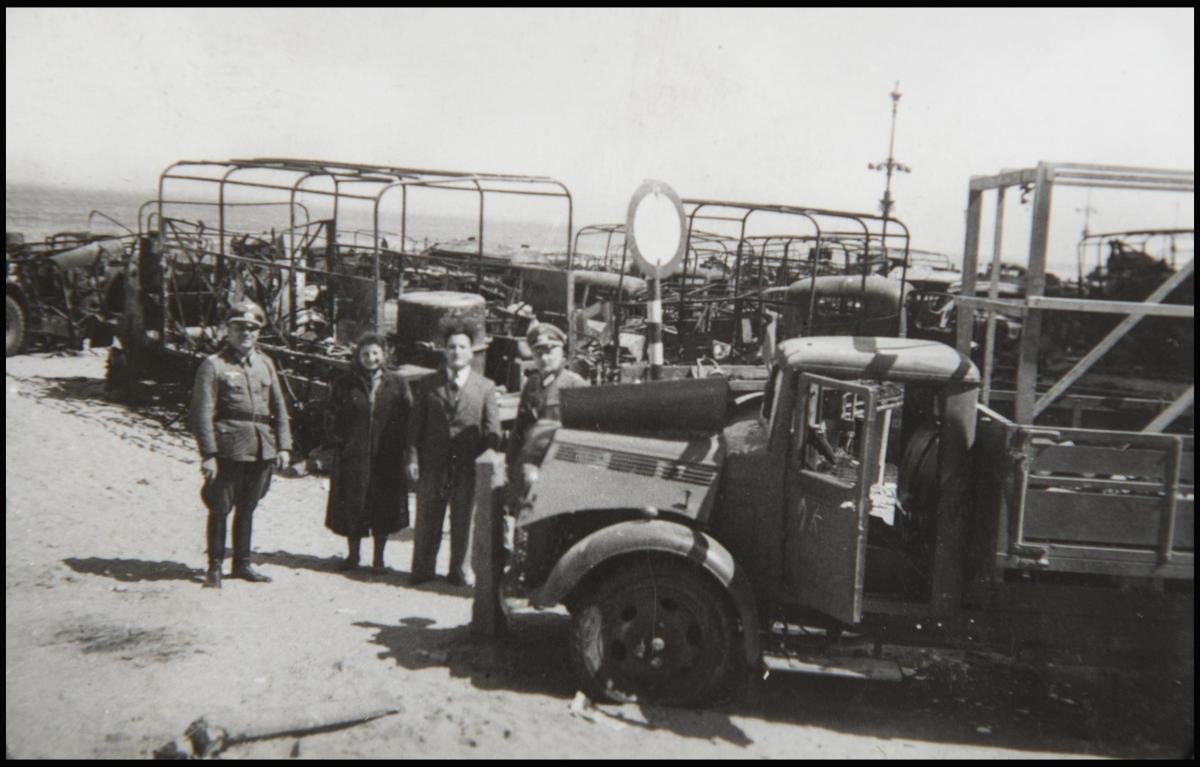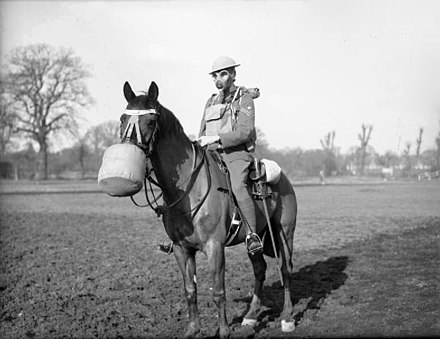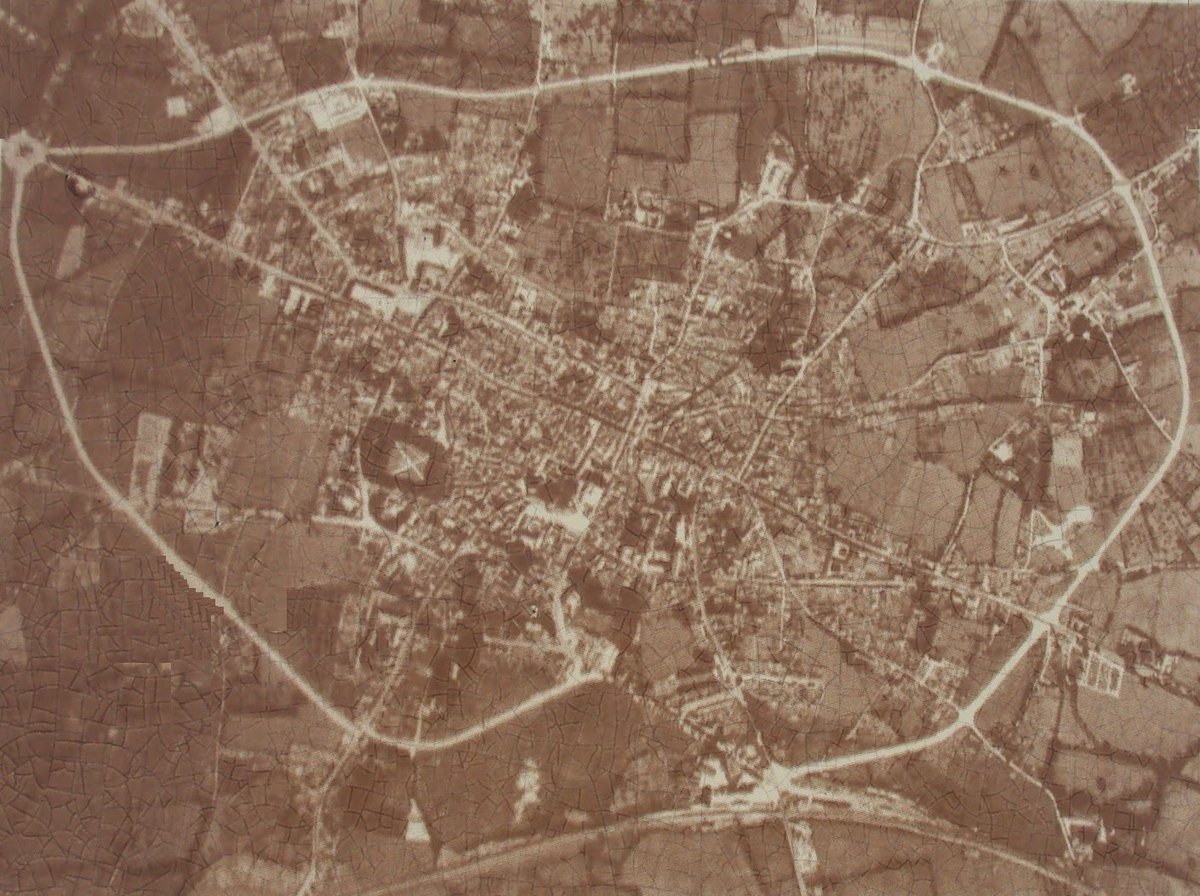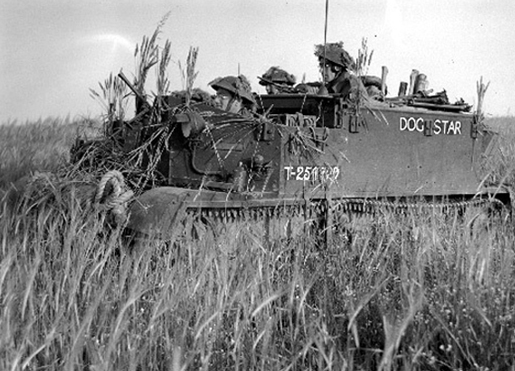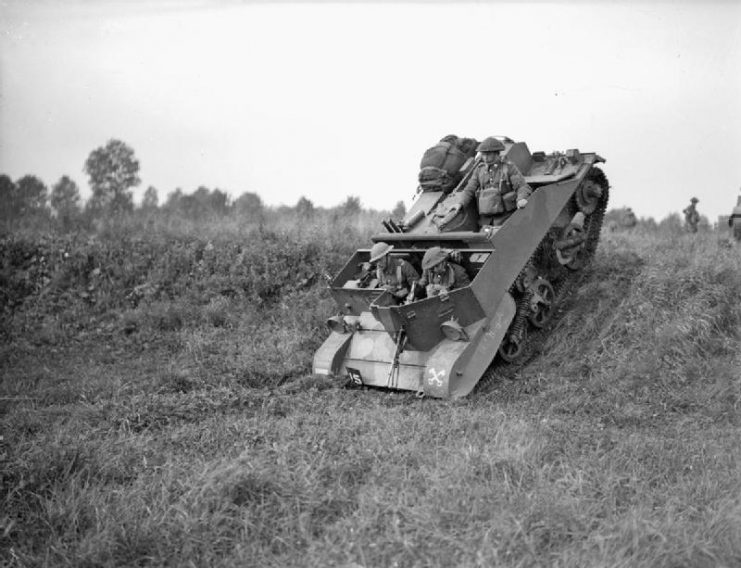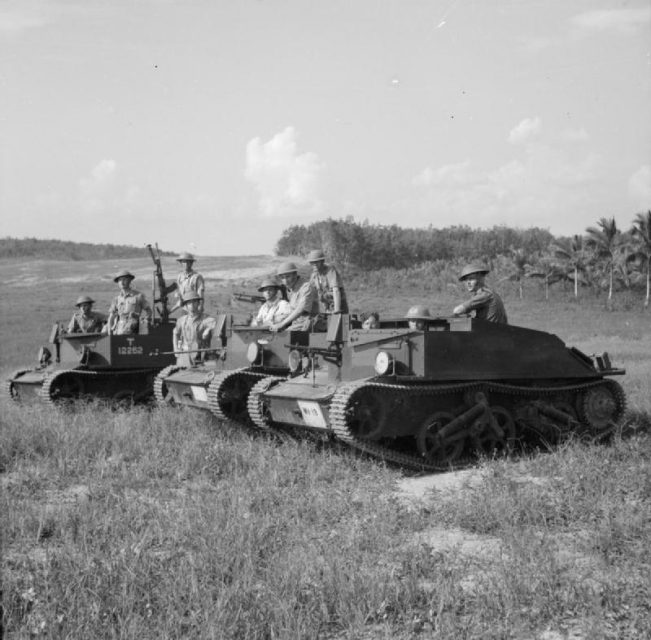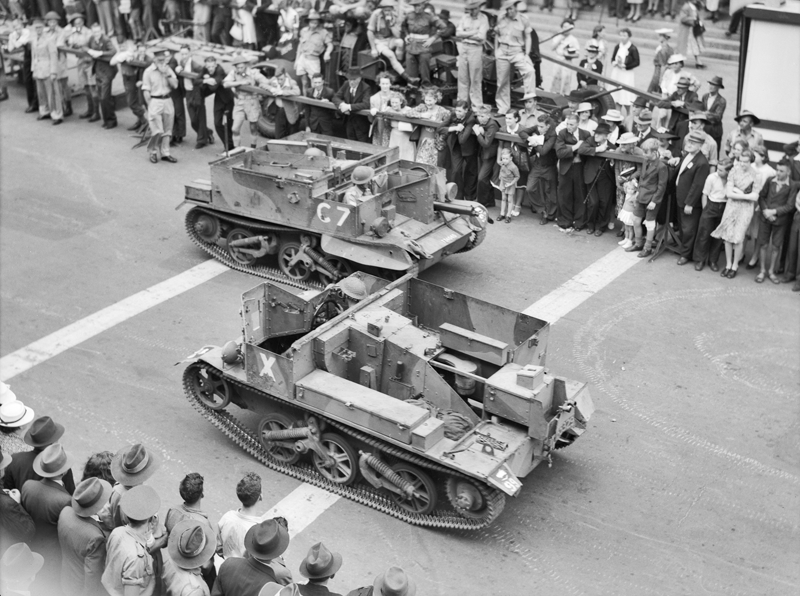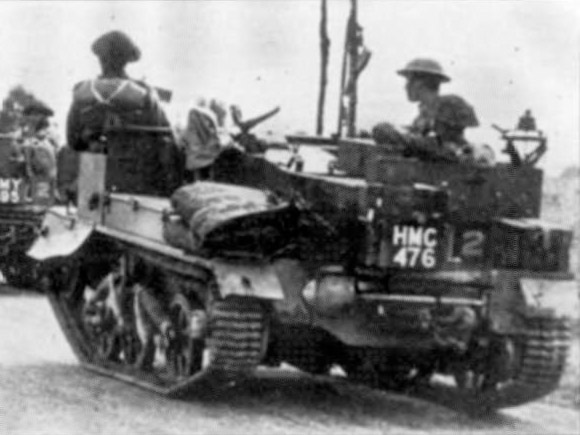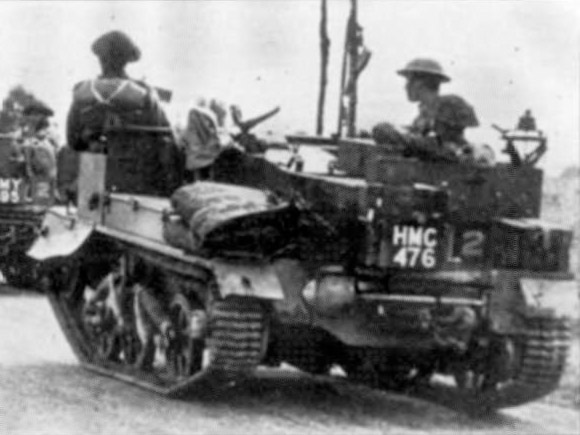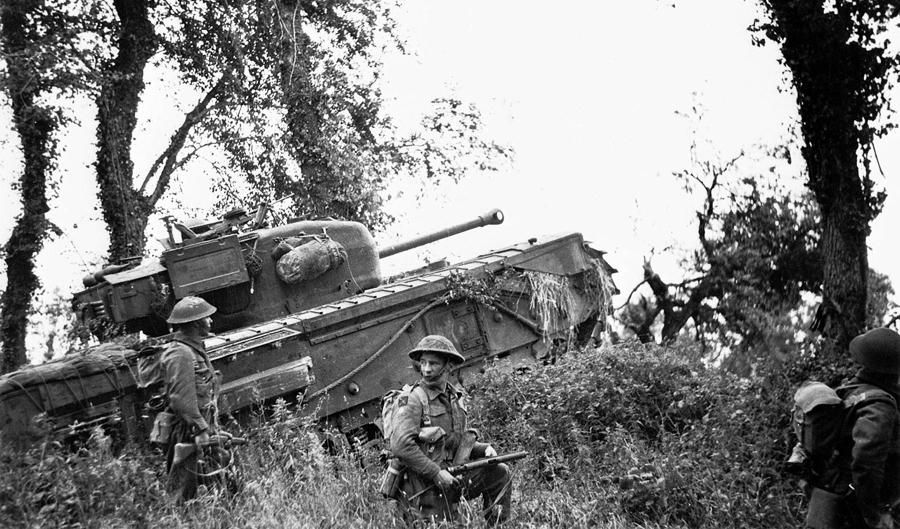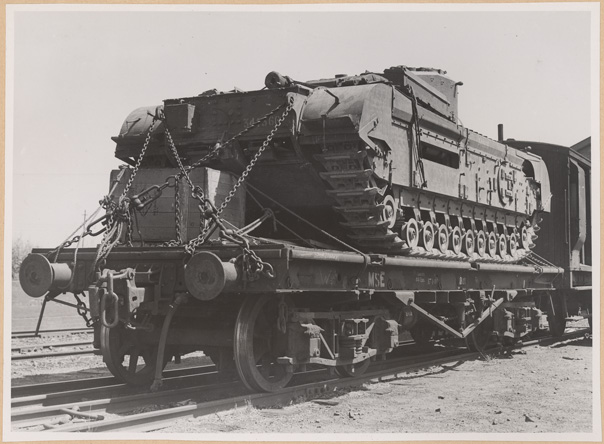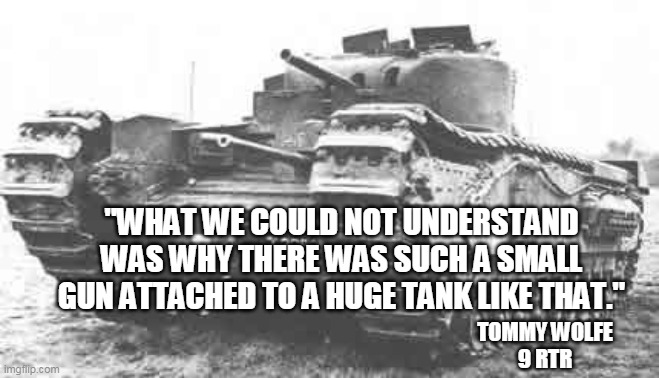
So in Normandy, the British have Regiments of Sherman, Cromwell, and Churchill tanks.*
And like where does the DINKY LIL' STUART FIT IN????
Well...
It's a doozy. /1
*Well Canadians jus' get Armd Regts of Shermans but that's for another day...
#WW2 #SWW #History
And like where does the DINKY LIL' STUART FIT IN????
Well...
It's a doozy. /1
*Well Canadians jus' get Armd Regts of Shermans but that's for another day...
#WW2 #SWW #History
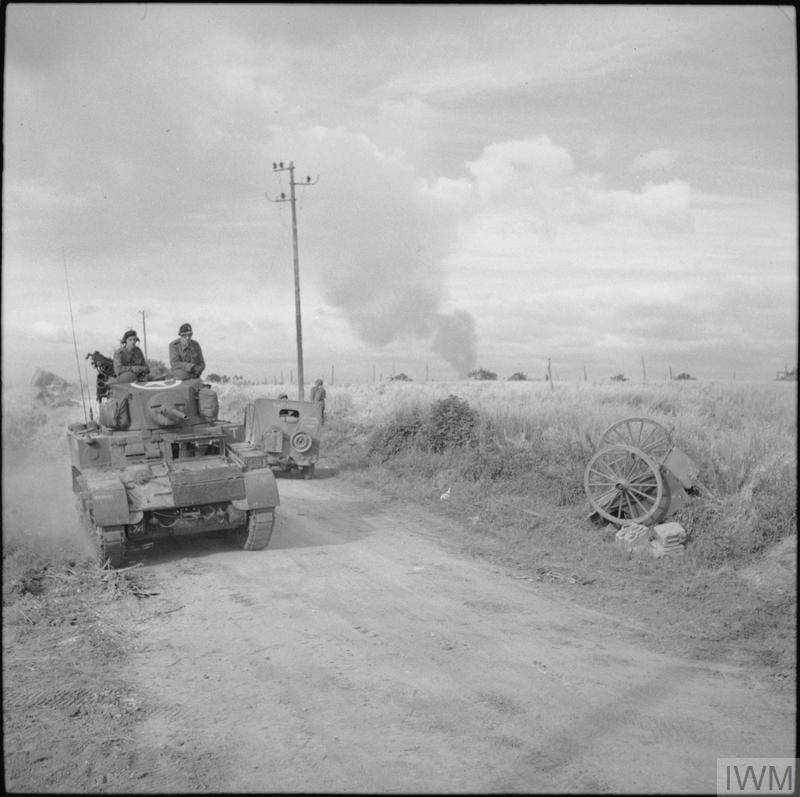
By May 1944 the Stuart was increasingly anachronistic.
The 37mm gun was too light to really do much against modern armour, the tank's profile was surprisingly high and not massively dissimilar to a Sherman - but utterly lacking in comparative firepower and protection. /2

The 37mm gun was too light to really do much against modern armour, the tank's profile was surprisingly high and not massively dissimilar to a Sherman - but utterly lacking in comparative firepower and protection. /2
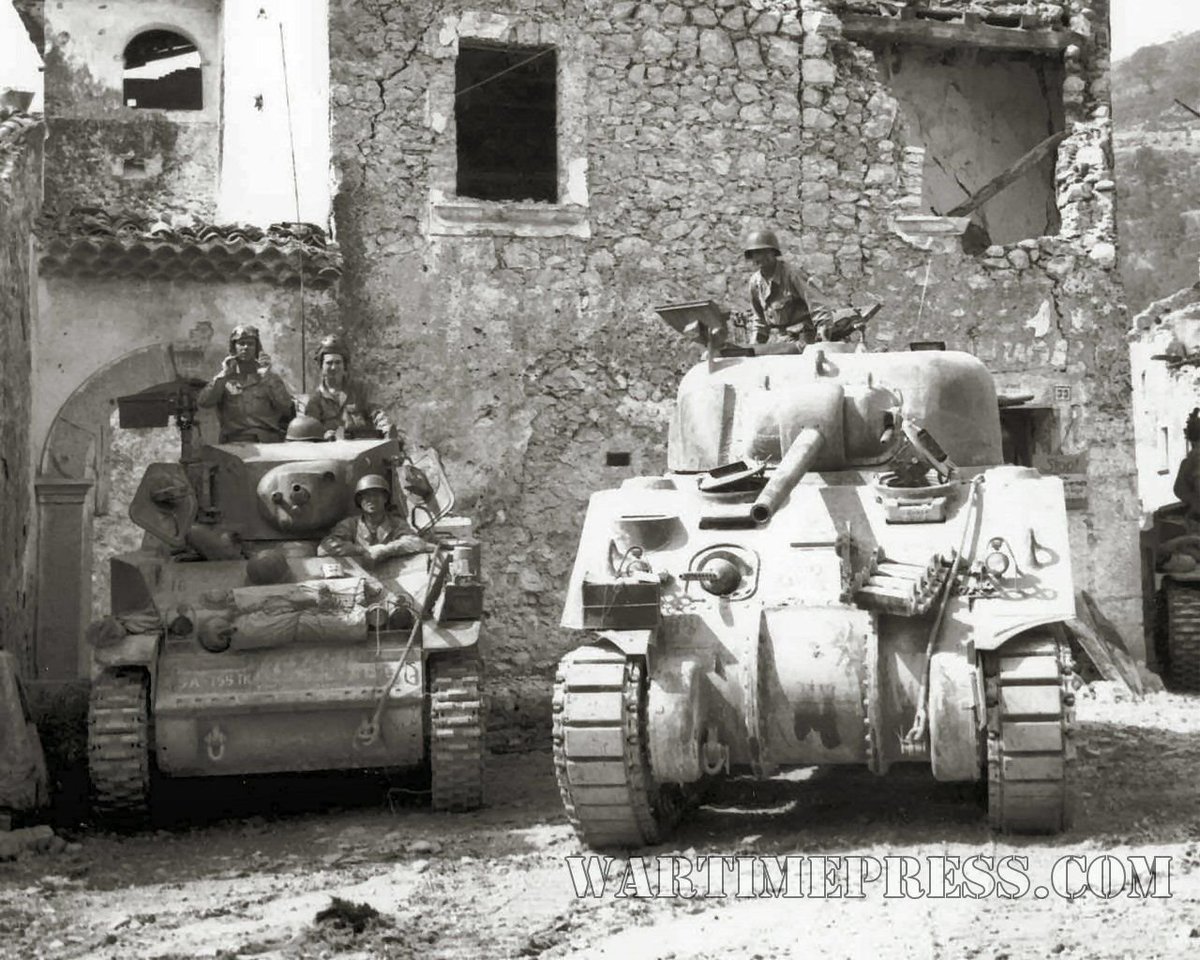
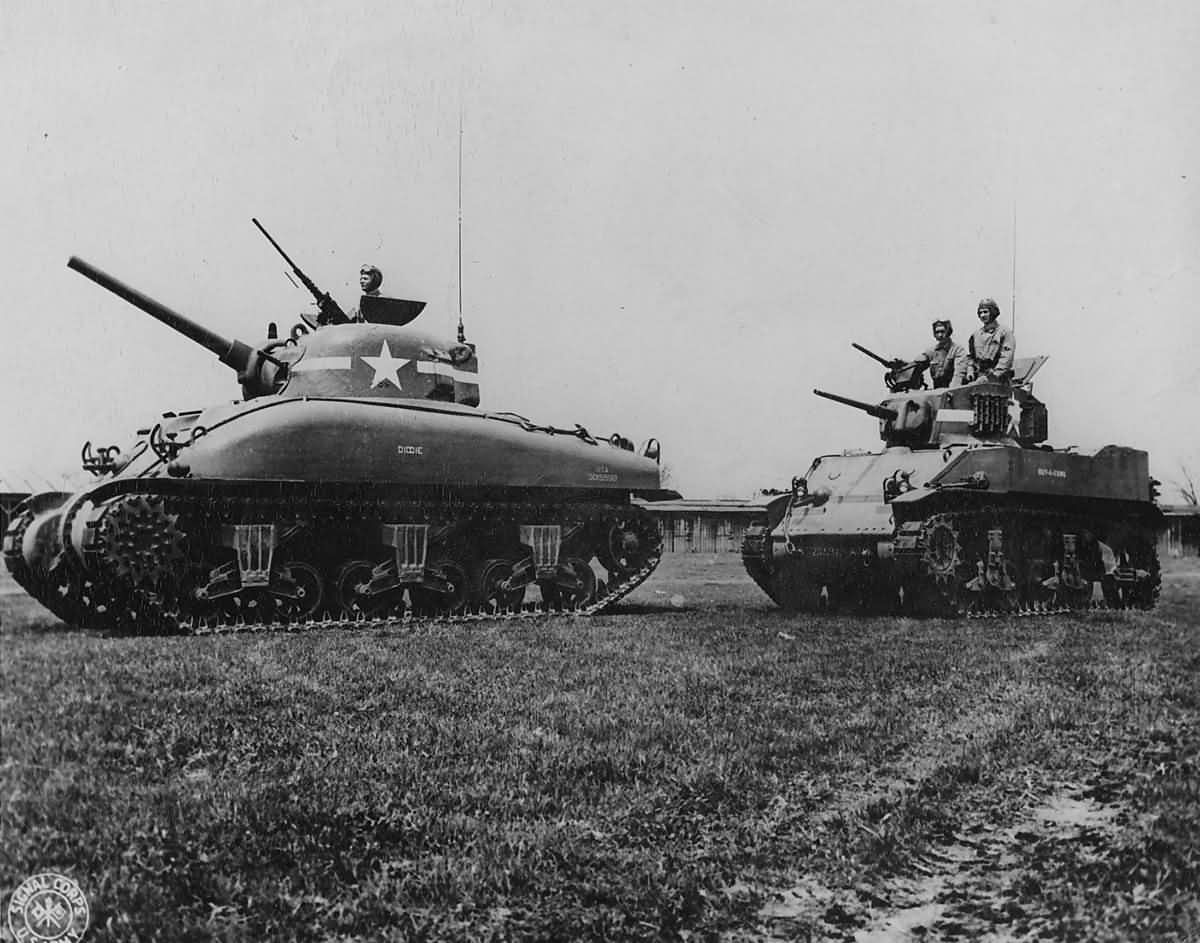
The Stuart was really a relic of a time when a quick, cheap, reliable, modular AFV was urgently needed using proven, readily available commercial parts.
The race for armament, firepower and mobility had left the tank rather behind. /3
The race for armament, firepower and mobility had left the tank rather behind. /3
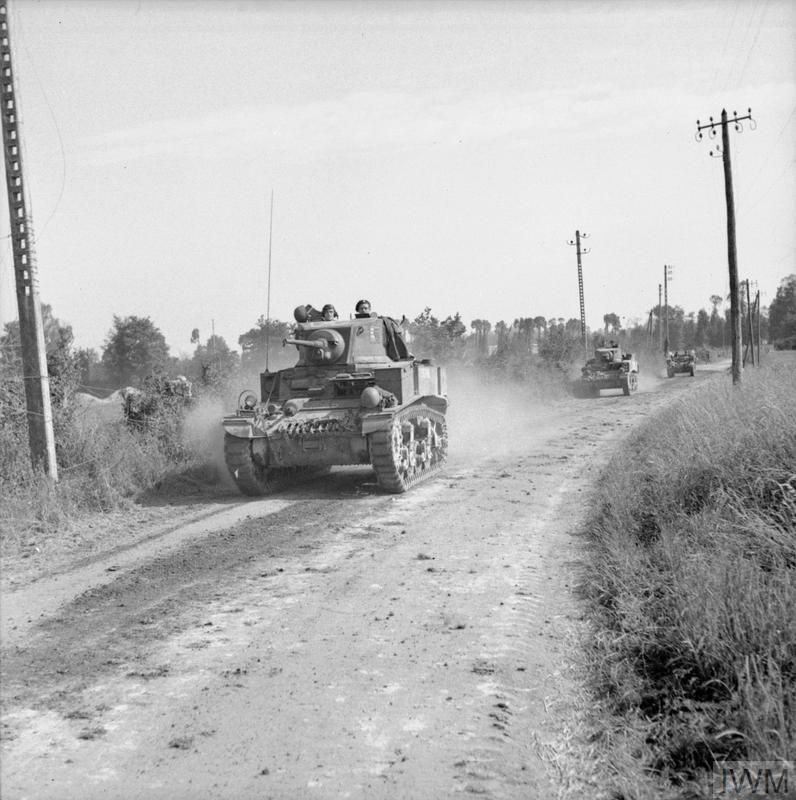
They would still see extensive service in US Armored Divisions' light tank companies, a policy that Major-General Ricky Richards was clearly rather uncomfortable with as he encouraged American commanders away from overt experimentation in Normandy. /4 
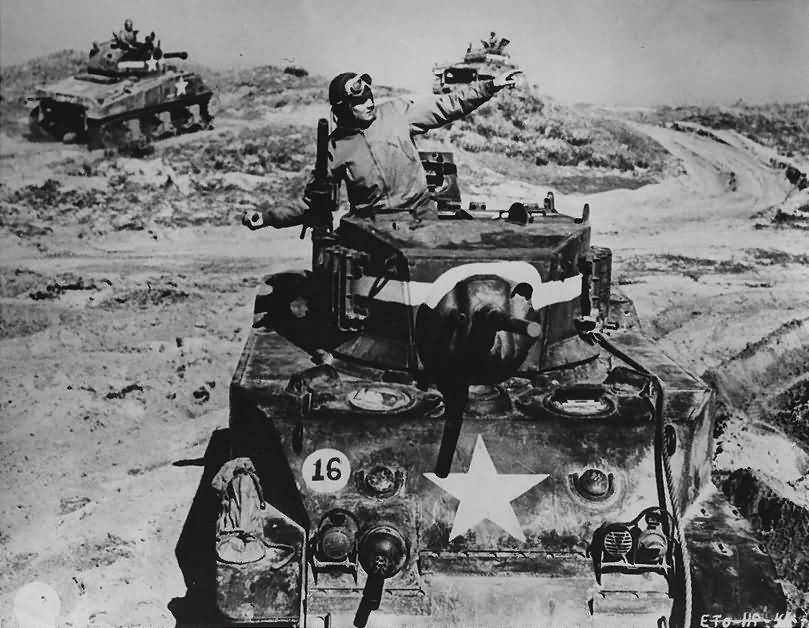
The British had plenty of Stuarts on hand, and there were concerns that Armoured and Tank Regiments' integral recce troops were too vulnerable & not mobile enough in their Universal Carriers.
So, the logic went, give the Armd & Tk Regt's recce troops Stuarts, job done! /5
So, the logic went, give the Armd & Tk Regt's recce troops Stuarts, job done! /5
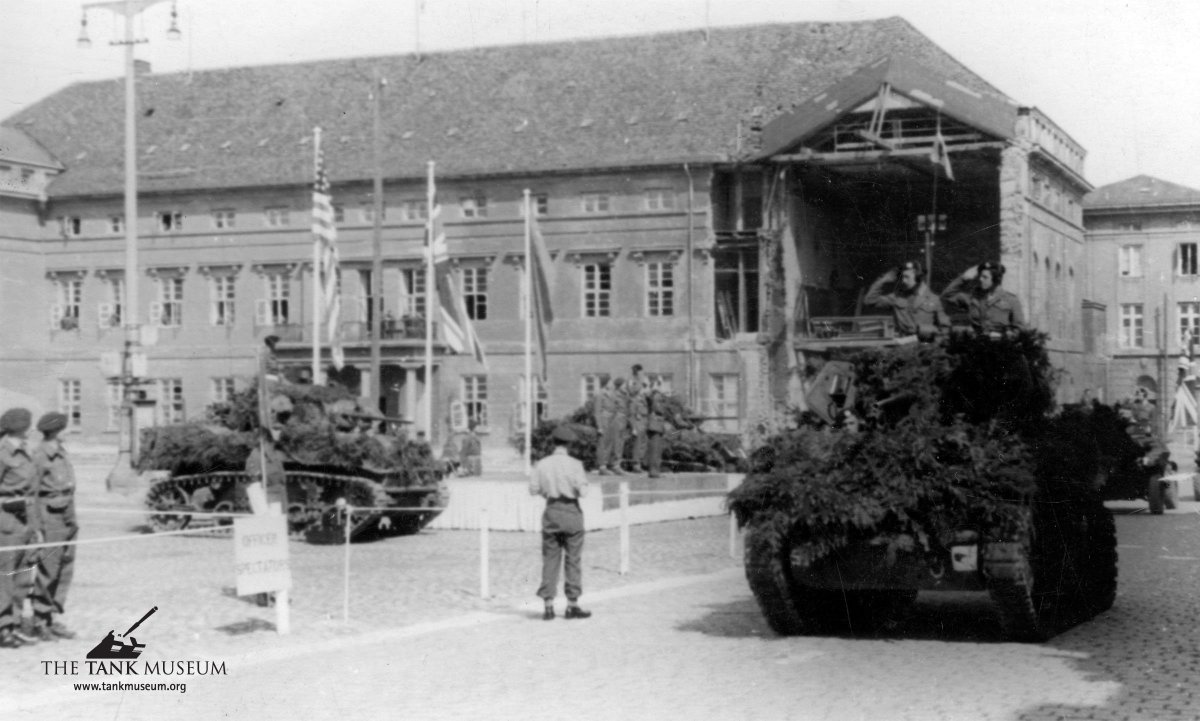
This quest saw protection, firepower and mobility trump discretion - which saw high profile AFVs issued to replace carriers & increase survivability.
As you can see.
Massive difference.
So around January 1944, recce troops upgraded to Stuarts. /6
As you can see.
Massive difference.
So around January 1944, recce troops upgraded to Stuarts. /6
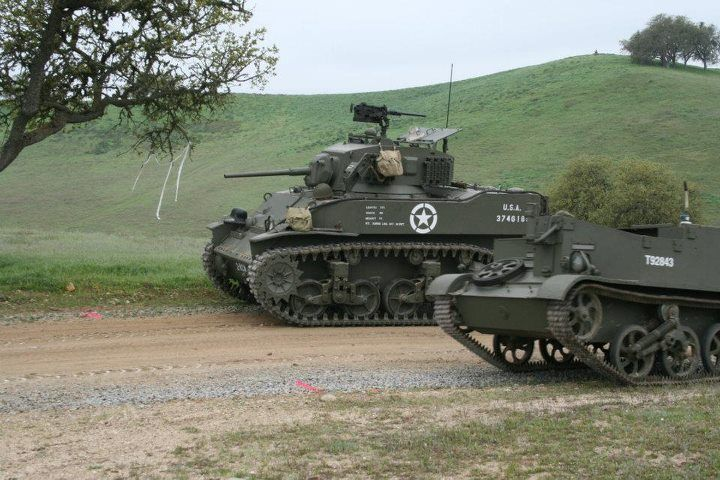
Each British armoured or tank regt's HQ Sqn had an integral recce troop of 11 - 12 tks acting as eyes & ears, locating, identifying and reporting ATK guns etc for destruction by arty.
Absolutely essential, as in tanks you can see and hear absolute sweet FA if buttoned down. /7
Absolutely essential, as in tanks you can see and hear absolute sweet FA if buttoned down. /7
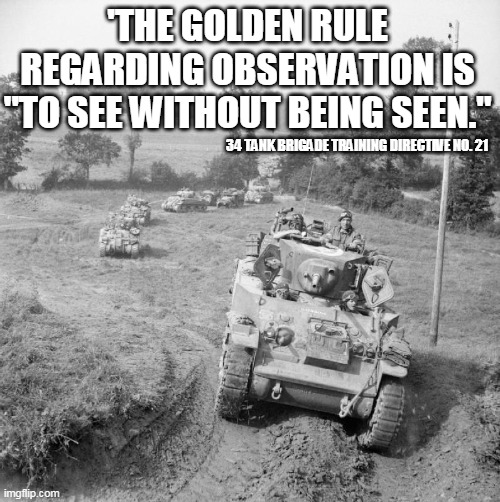
Structures varied a bit, but broadly consisted of a Recce Troop HQ of three Stuarts overseeing four sections of two Stuarts.
Logic of the three tank Tp HQ was... one tank for Troop Leader, another in case the his tank is disabled so you've got a spare mount, 3rd for liaison /8
Logic of the three tank Tp HQ was... one tank for Troop Leader, another in case the his tank is disabled so you've got a spare mount, 3rd for liaison /8
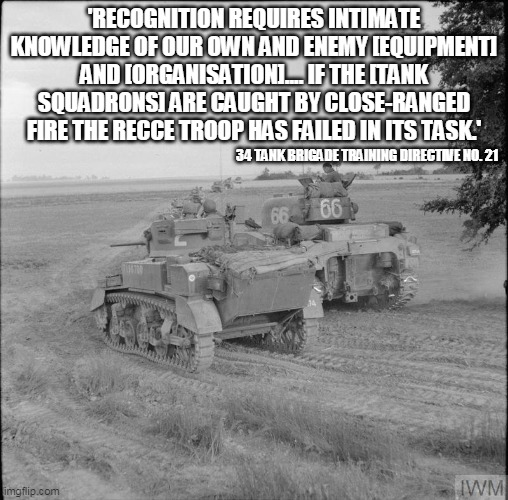
or an immediate replacement in the event of losses.
In truth the Recce Troop were only nominally under HQ Squadron, & could be slotted almost anywhere.
Doing direct recce on their own, seconded under a squadron or odd jobs etc.
Just had to integrate them to wireless net. /9
In truth the Recce Troop were only nominally under HQ Squadron, & could be slotted almost anywhere.
Doing direct recce on their own, seconded under a squadron or odd jobs etc.
Just had to integrate them to wireless net. /9
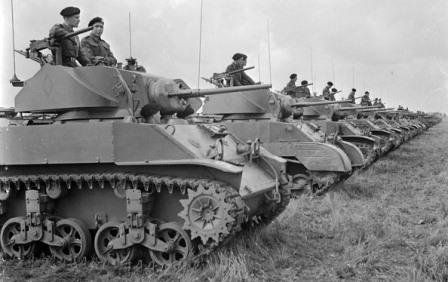
There was also the opportunity, in rather curious circumstances, to make them step up and act as a 4th mini-Sqn.
And, like, hopefully encounter nothing larger than an armoured car really... /10
And, like, hopefully encounter nothing larger than an armoured car really... /10

*Bare in mind that, like all of British Second Army employment can vary corps to corps, division to division and regiment to regiment*
/11
/11
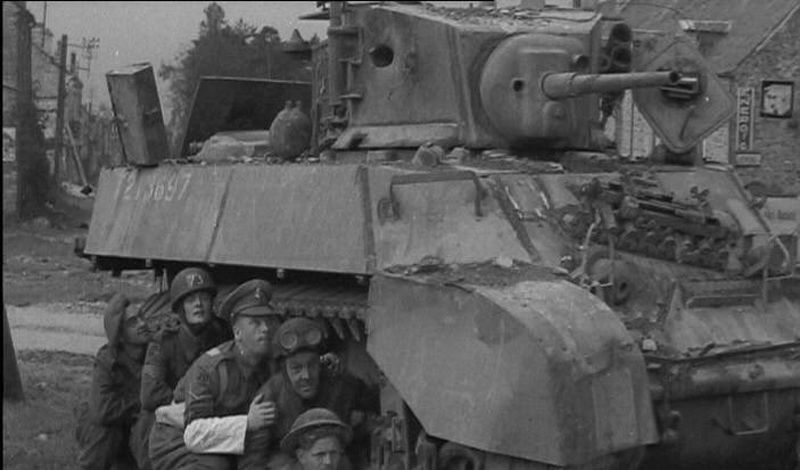
Normandy came to highlight that Stuart probably wasn't the best choice for a bespoke, discreet platform from which to observe and report the location enemy anti-tank guns and tanks.
A much juicier target than say an AOP Carrier.
It was rather big. /12
A much juicier target than say an AOP Carrier.
It was rather big. /12
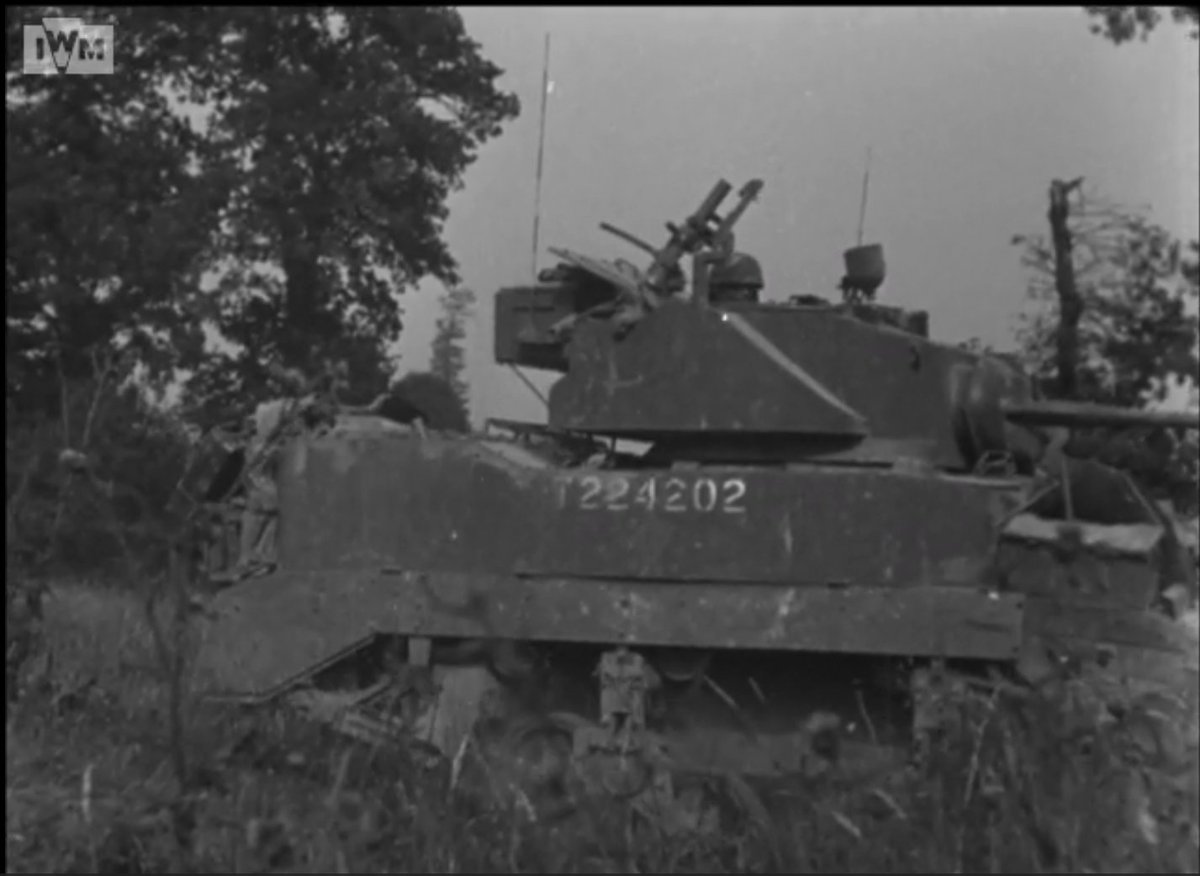
They also couldn't sustain a hit like an AOP Sherman could, which was only a bit bulkier all things considered.
So you've got a big metal box which is about as discreet as a fox on heat, but lacking all the carrier's agility and inconspicuousness.
Ah. /13
So you've got a big metal box which is about as discreet as a fox on heat, but lacking all the carrier's agility and inconspicuousness.
Ah. /13
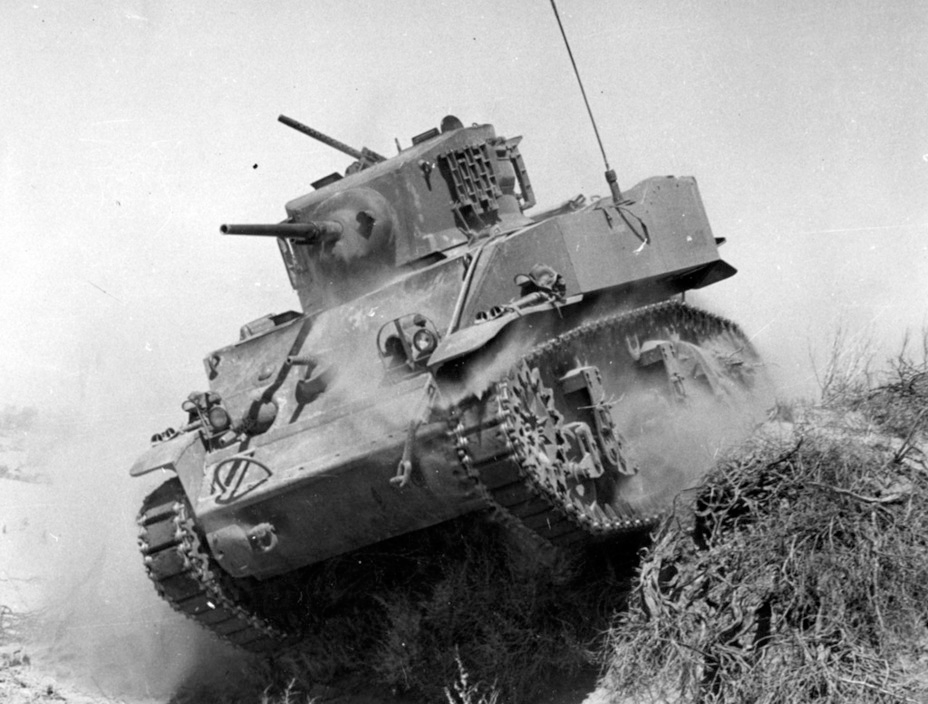
Many Stuarts sustained damage early on, whether from bombardment or enemy action, which saw a steady but undeniably patchy trend to remove the turret and 'Jalopy' them into turret-less recce AFVs.
Essentially a chonky carrier.
The loss of the 37mm wasn't that big a deal. /14
Essentially a chonky carrier.
The loss of the 37mm wasn't that big a deal. /14
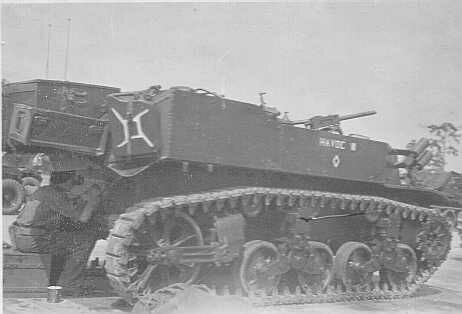
Engagements where Stuarts became casualties early on tend to be punishing, not least as armoured and tank squadrons relied on the recce troop to be watching out for them and closely liaising targets and supporting fire with attached FOOs. /15 
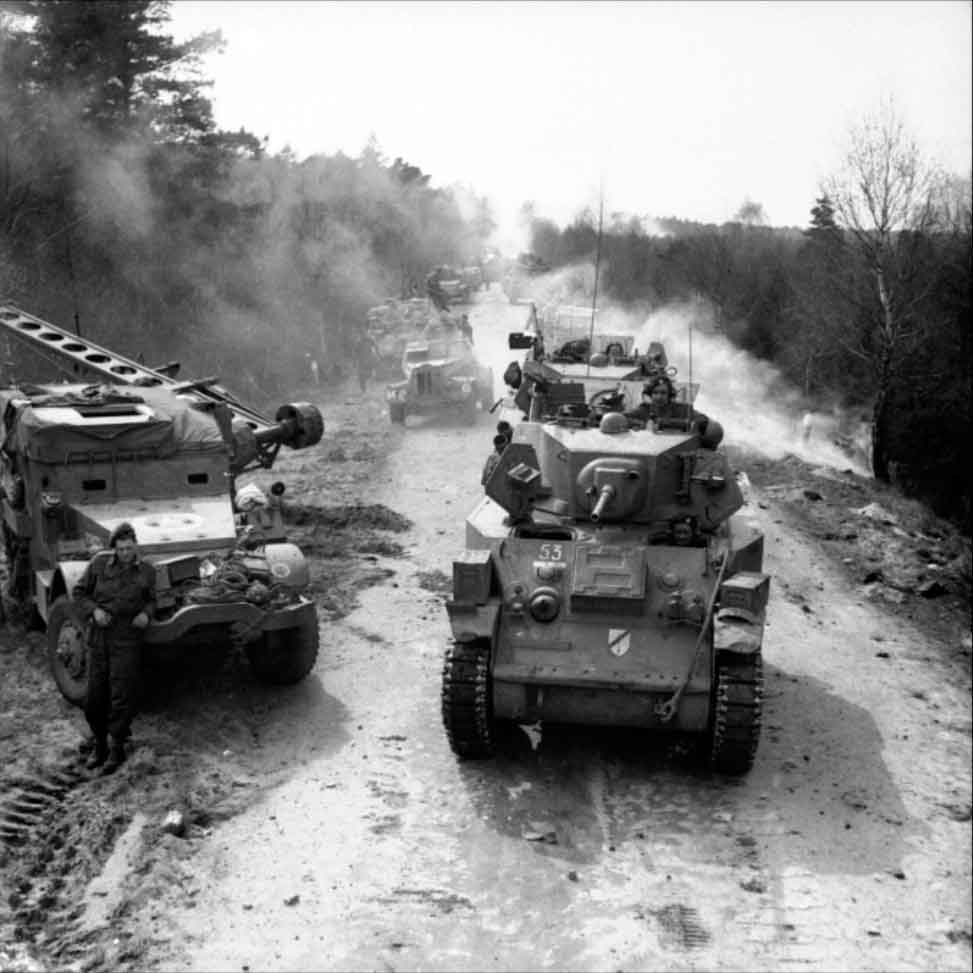
Wireless nets were finicky and comms could be patchy, it appears many more squadron commanders assumed the recce troop were on the job when they'd often be ineffective.
Serving in the recce troop was an undeniably shit assignment, high stress, high risk, low reward. /16
Serving in the recce troop was an undeniably shit assignment, high stress, high risk, low reward. /16
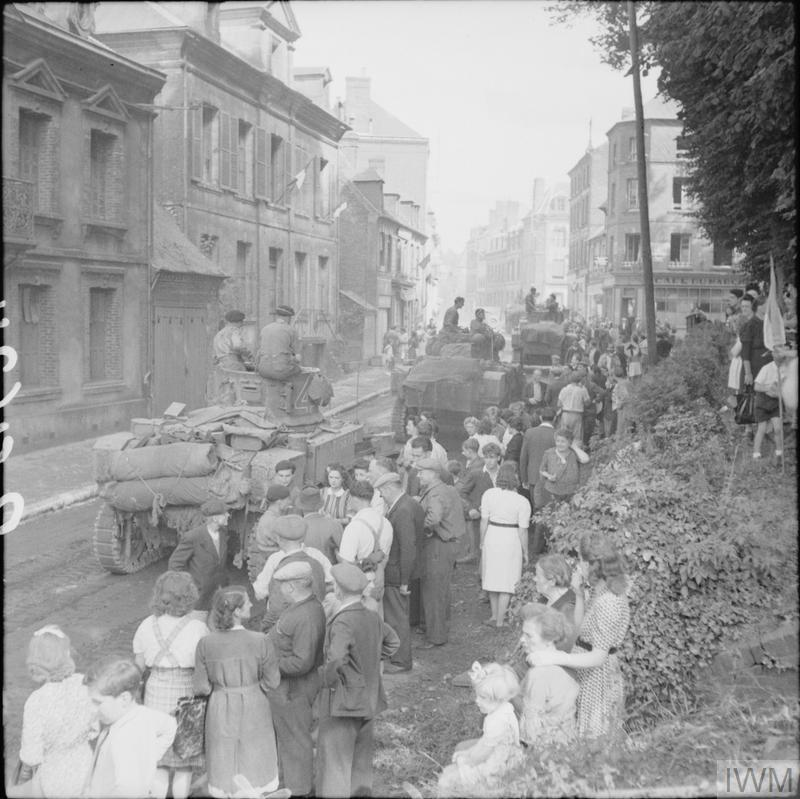
That said, they provided regiments with an additional useful asset to support infantry when needed - as their two .30 Brownings are two more machine guns in an armoured box, and their 37mm proved useful in eliminating small MGs or clearing buildings. /17 
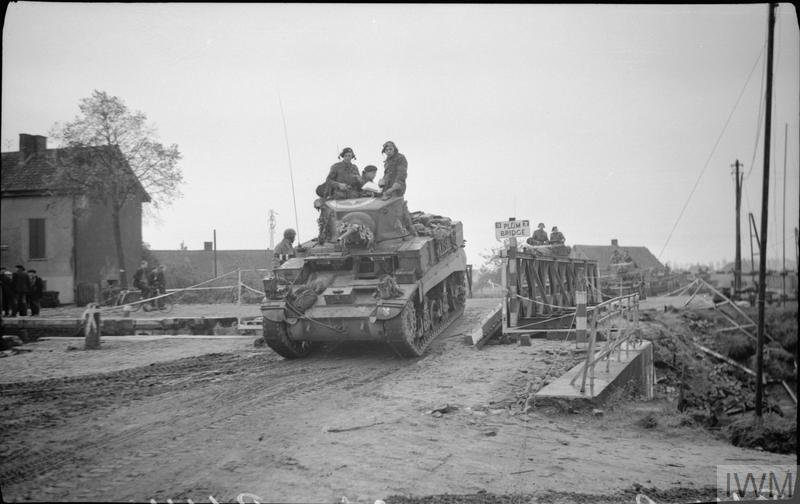
Like all tanks, Stuarts tended to drain the enemy's willingness to scrap and greatly incentivise buggering off.
Trials of canister shot proved encouraging for clearing hedgerows and other defences, turning the 37mm into a seriously giant shotgun. /18
*Yes a Stuart is here...
Trials of canister shot proved encouraging for clearing hedgerows and other defences, turning the 37mm into a seriously giant shotgun. /18
*Yes a Stuart is here...
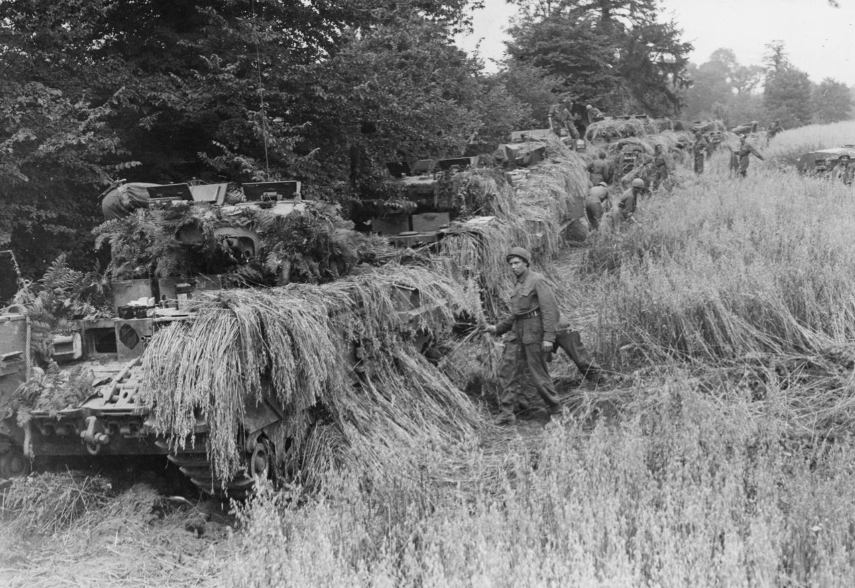
Hugh Buckley talking about his experience of Stuart light tanks in the Sherbrooke Fusiliers, part of 2 Canadian Armoured Brigade. /19
https://twitter.com/JunoBeachCentre/status/1135200145904164864
My own ramble on Stuarts in Normandy, covers 107 RAC a bit, general employment and 'Bolshy' status of some crews.
Crap footage mind. /20
Crap footage mind. /20
https://twitter.com/ReassessHistory/status/952927517505028099
The approach to Falaise highlighted punishing terrain which complicated employment of all AFVs, bar Churchill.
Universals and half-tracks struggled to keep up with wallowing Shermans, Stuarts appear not quite so cursed.
Jalopying a Stuart became useful life-extension. /21
Universals and half-tracks struggled to keep up with wallowing Shermans, Stuarts appear not quite so cursed.
Jalopying a Stuart became useful life-extension. /21
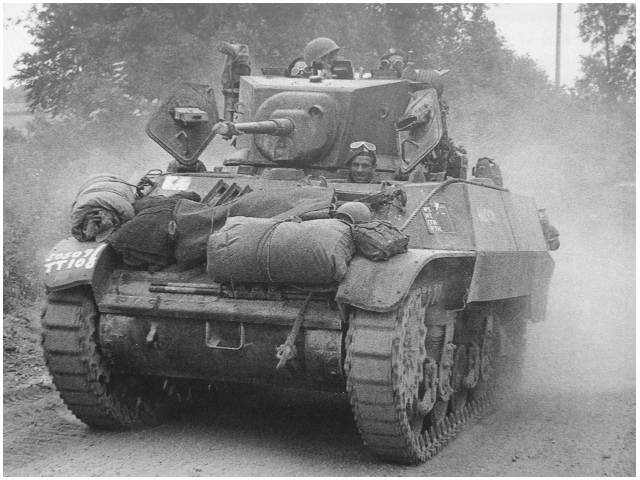
As all we really needed in a recce troop vehicles in armoured and tank regts was a bit of armour, excellent movement, low profile, brilliant comms and a more roomy interior than universal carrier.
When Jalopied, a solid move. /22
When Jalopied, a solid move. /22
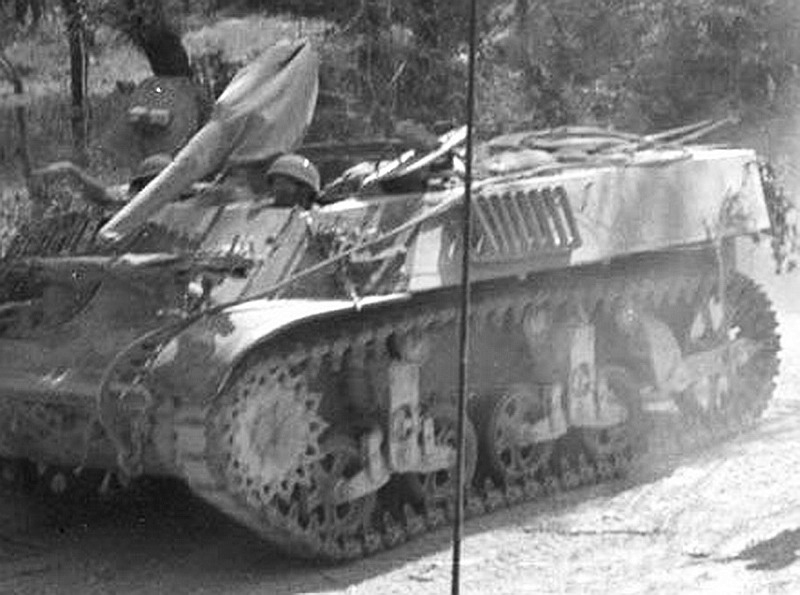
The problem was... in the basic configuration Stuart just presented too much of an attractive target for the enemy.
Costing the lives of Stuart crews and those men in the tanks they were meant to protect.
Perhaps pertinent thoughts when designing modern recce AFVs /thread
Costing the lives of Stuart crews and those men in the tanks they were meant to protect.
Perhaps pertinent thoughts when designing modern recce AFVs /thread
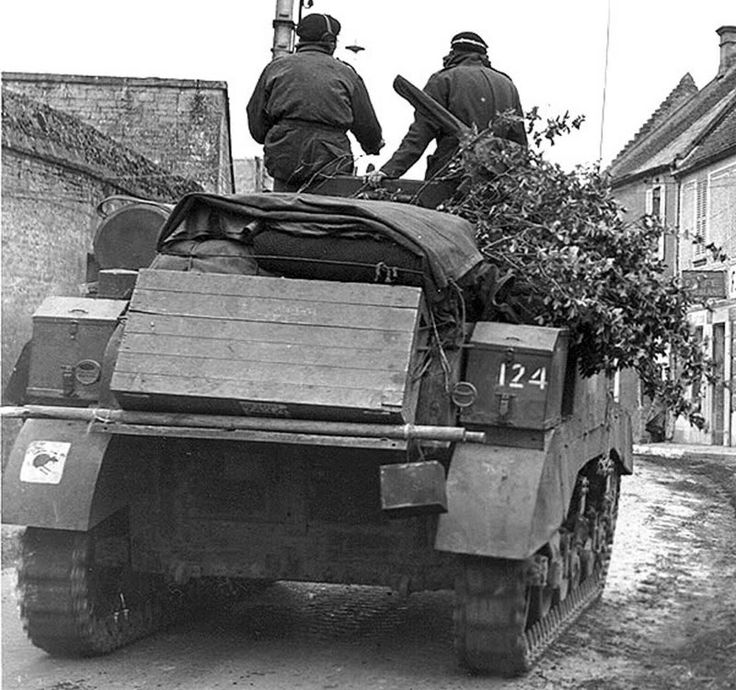
• • •
Missing some Tweet in this thread? You can try to
force a refresh

